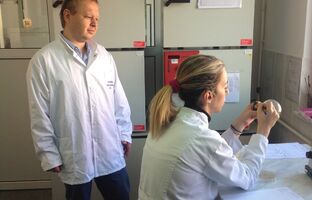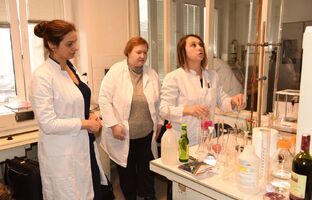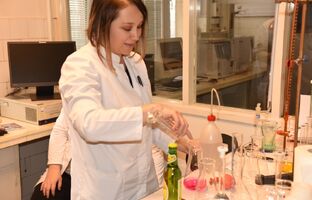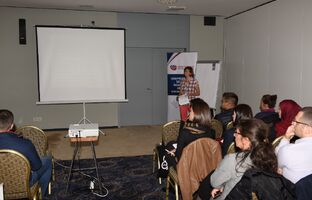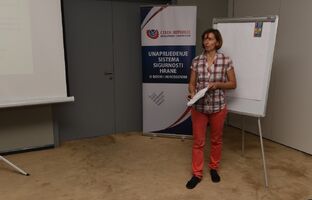One of the main problems related to agricultural and food production in Bosnia and Herzegovina is food quality and safety. Control mechanisms in this area are either lacking or are completely inadequate. Foods that pose a risk to human health may be produced as a consequence. The uncontrolled application of pesticides and fertilizers also has a negative impact on the environment, particularly on surface water, groundwater, and the soil. In addition, the food does not meet standards for import to the EU Member States and is thus not competitive in those markets.
This project, entitled Improving Food Safety in Bosnia and Herzegovina and implemented between 2017 and 2020, is based around the current priorities of partner organizations and is fully in accordance with European Commission food safety recommendations. The project also follows on from previous Czech Development Agency projects implemented here in the agriculture and rural development sector.
The need to create a control plan for food additives, pesticides, and salmonella
“It is clear that better food safety will have a positive impact both on the incidence of illnesses caused by unsafe food and also on the environment by reducing the agrochemical burden on the land. If, in addition, Bosnia and Herzegovina produces safe food, it will then be able to export to the EU Member States. Our project, therefore, determines appropriate procedures and systems in three control areas: pesticides and fertilizers, salmonella, and food additives,” says Jan Rosmus of the State Veterinary Institute, the joint project implementer together with the Central Institute for Supervising and Testing in Agriculture.
The first part of the project thus focused on creating a control system for pesticides and fertilizers and an integrated production system. After the completion of the project, Bosnian laboratories will be capable of detecting fertilizer and pesticide residues and a fully functional register of plant protection products and fertilizers will be created. The Administration of Bosnia and Herzegovina for Plant Health Protection is a key partner at the state level.
The second part of the project focused on salmonella control. Activities included planning and the introduction of official sampling. This part of the project will include an audit of official control and legislation workplaces and a plan for an official sampling system will be created. At least 10 inspectors and at least 20 staff from 10 producers and processors will also be trained in planning and official sampling. Here the main partner is the Veterinary Office of Bosnia and Herzegovina.
The third part of the project focuses on the control of food additives. The food additives issue is not harmonized with the EU throughout Bosnia and Herzegovina, even though the relevant rules and regulations were issued in September 2017. The main partner in this part of the project is the Food Safety Agency of Bosnia and Herzegovina.
“The project’s direct target group is administrative staff with competencies for food safety. These are institutions and administration at both state and entity-level that will benefit in particular from the newly introduced control systems and new methods contributing towards improvements in food safety. The farmers themselves will also be direct beneficiaries, as they will have the opportunity to expand their knowledge through training and obtain integrated agricultural production certification,” says Sara Miličić, in charge of projects in Bosnia and Herzegovina at the Czech Development Agency.
The project’s final beneficiaries can be considered the entire population of Bosnia and Herzegovina, as better food safety will result in health and environmental benefits over the long term. Consumers in other countries to which food is exported from Bosnia and Herzegovina will also profit from the project. Thanks to the project, more types of food in Bosnia and Herzegovina will meet food safety standards and will be eligible for export to the EU Member States – in particular Croatia, a traditional customer for Bosnian production, as exports to this country from Bosnia and Herzegovina have been limited since Croatia’s accession to the EU in 2013 primarily due to failures to comply with European standards.



